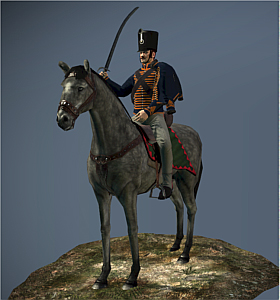
Its troops were experienced fighters, and its commander still inspired passionate loyalty. But even in this diminished state, the French army was a fearful opponent.

With enemy armies massing on France’s northern frontiers, he attempted, unsuccessfully, to put together a volunteer force to supplement the standing army at his disposal. Photograph by LBORINDGDEMOANN/ACĮvents moved swiftly, and the restored French emperor had little time to organize. Right: Insignia of the Legion of Honor taken from a French officer who died at Waterloo. Together, they signed what amounted to a declaration of war. Despite his claims to want peace, Britain, Austria, Prussia, and Russia were wary. On March 20, Napoleon reached Paris with the support of the masses ringing in his ears. A flow of intelligence from the mainland helped him plan for his daring return to the continent in early 1815. He was granted sovereignty of the island, as well as an armed guard. In April 1814 Napoleon was forced to abdicate and accepted banishment to Elba, a few miles off the Italian coast, where he was not exactly a prisoner. Following the French Grand Army’s ruinous attempt to invade Russia, allied forces invaded France from all sides. Despite initial setbacks, Wellesley managed with patience and skill to expel Napoleon from Portugal in 1811 and won decisive victories against the French in Spain in 1813, dealing a major blow to the emperor’s plans for European domination. The Irish-born commander had chalked up military successes in India before being sent to Portugal in 1809 where he helped guerrillas resist Napoleon’s occupation. It was on the Iberian Peninsula that the future Duke of Wellington, born Arthur Wellesley, first defeated Napoleon. To the west, he enforced a trade blockade on Britain by invading Portugal, its commercial ally, and brought much of Spain under his control in the process. But even as Napoleon abandoned hope of invading Britain, his Grand Army went on to occupy swaths of Europe in what is now Germany and Poland.

The French Empire’s renewed hopes to break British naval power were dashed at the Battle of Trafalgar in 1805. ( Why claiming the crown cost Napoleon a famous fan: Beethoven.) His forces defeated Austria, and in 1804 Napoleon crowned himself emperor of France. Returning to France, Napoleon took part in a coup against the government and then became first consul in February 1800. By 1799 France was at war with most of Europe.

Proposing an aggressive approach by attacking Britain’s territories en route to India, Napoleon led the invasion of Egypt in 1798. As a young soldier, he supported the radical ideals of the French Revolution and rose rapidly through the ranks of the French army. The First Rise and Fallīorn on the island of Corsica in 1769, Napoleon Bonaparte possessed furious intelligence and relentless ambition.


 0 kommentar(er)
0 kommentar(er)
